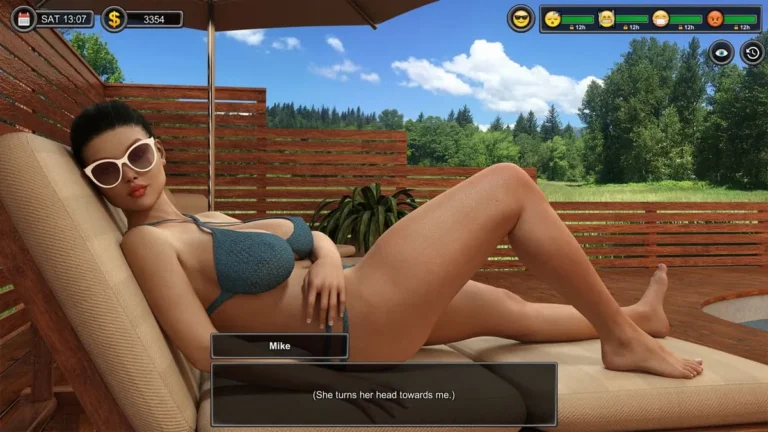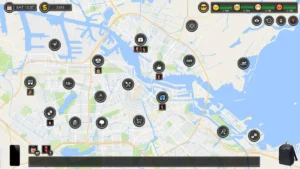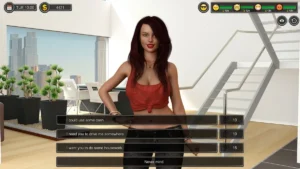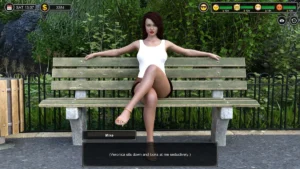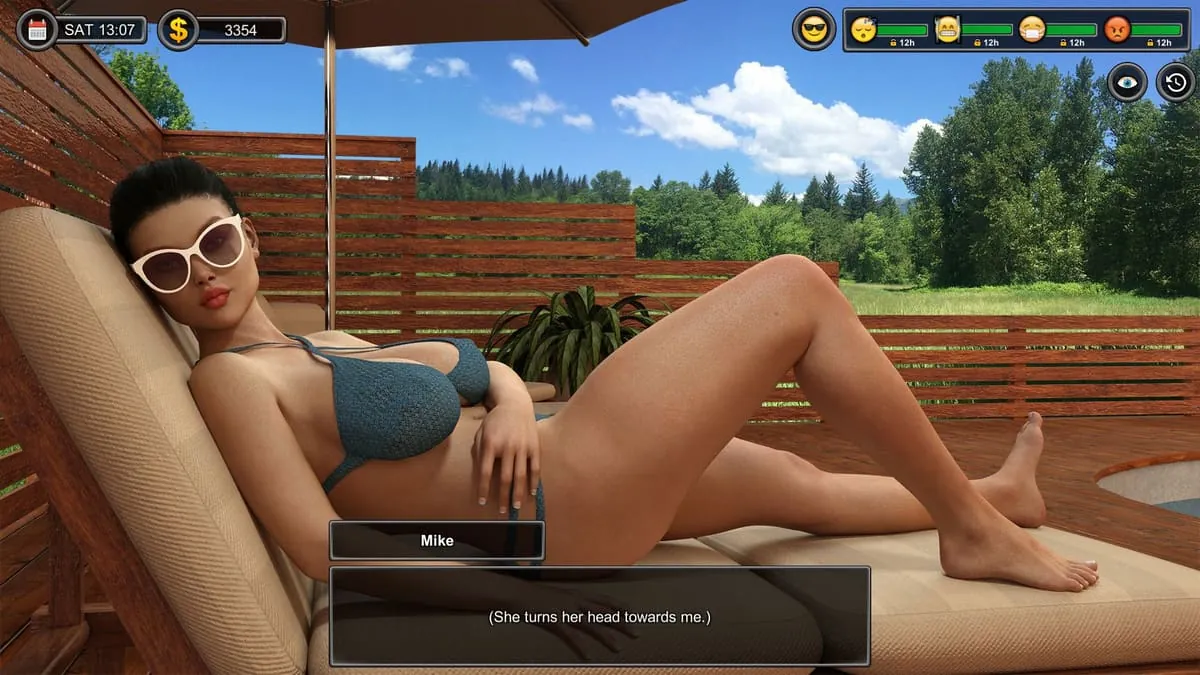
Man of the House review
Master gameplay mechanics, character relationships, and unlock all scenes with this comprehensive strategy guide
Man of the House is an engaging simulation game that challenges players to navigate complex relationship dynamics and strategic decision-making. As a 20-year-old protagonist surrounded by multiple characters, your goal is to build relationships through carefully timed interactions and stat management. This comprehensive guide covers everything you need to know about maximizing your gameplay experience, from understanding core mechanics to unlocking exclusive scenes and achievements. Whether you’re a newcomer or looking to optimize your playthrough, this walkthrough provides actionable strategies to help you progress efficiently and discover all the game has to offer.
Understanding Core Gameplay Mechanics
Alright, let’s get straight to the heart of what makes Man of the House tick. 🎮 I remember booting up the game for the first time, completely overwhelmed by the sheer number of choices. Where do I go? Who do I talk to? It felt like trying to solve a puzzle without knowing what the picture was supposed to look like. 😵💫 The key to moving from confused beginner to master of the household lies in understanding three fundamental pillars: your stats, your schedule, and your location. Nail these, and you’ll be unlocking scenes you didn’t even know existed. This gameplay mechanics tutorial is your foundation for everything that follows.
Character Stats System and How to Build Them Effectively
Think of your character’s stats as the ultimate progression gates. 🚪 You can’t just say the right thing; your relationships need to be at the right level for characters to even consider opening up to you. This is the core of any effective Man of the House stats guide.
The three stats you’ll be managing are Love, Arousal, and Submission. Each one represents a different facet of your relationship with the characters in the house.
- Love is the emotional connection. It’s built through thoughtful conversations, giving gifts, and helping out with tasks. High Love is often a prerequisite for more romantic and intimate moments.
- Arousal reflects the physical and sensual tension. This is increased through flirtatious dialogue, “accidental” encounters, and discovering what each character finds exciting.
- Submission is about influence and control. It’s not necessarily about being domineering, but about taking charge in a way that the character finds appealing or reassuring. This can be raised by making decisions for them or winning certain mini-games.
Here’s the golden rule I learned the hard way: you don’t just need to raise these stats; you need to raise them in the right combination. Some scenes require a high Love but only a moderate Arousal. Others might need a sky-high Arousal stat with a specific Submission level. This is where strategic character stat progression is crucial. Trying to max out one stat blindly is a surefire way to hit a wall.
To help you visualize the thresholds, here’s a breakdown of how stat progression typically works in the game:
| Stat Range | Love Unlocks | Arousal Unlocks | Submission Unlocks |
|---|---|---|---|
| 0-30 | Basic friendly interactions, initial conversations. | Initial flirtatious dialogue options become available. | Character may start accepting minor suggestions. |
| 31-60 | Deeper conversations, ability to give gifts, first romantic hints. | More daring flirtation, characters may react to provocative clothing. | Characters may agree to small dares or requests. |
| 61-90 | Strong emotional bond, confession scenes, dating opportunities. | Initiation of physical contact, passionate kissing scenes. | Characters will follow your lead in more significant situations. |
| 91-100 | Ultimate emotional connection, commitment scenes. | Full intimate scenes, exploration of deepest fantasies. | Complete trust and willingness to follow your direction. |
So, what are the best stat building tips? 🧠
Pro Tip: In the early game, focus on balanced growth. Spend your first few days rotating between characters and raising all their core stats to around 30-40. This opens up far more dialogue and interaction options, giving you a solid foundation. Trying to specialize too early can lock you out of easy opportunities.
Don’t be afraid to use the game’s built-in hint system! 💡 It’s not cheating; it’s smart strategy. If you’re stuck on how to unlock scenes for a particular character, spending a hint can point you toward the location or action you’re missing, often related to a stat threshold you haven’t met. And for those of you who, like me, hate missing out, the “cheat” or “replay” mode is a godsend. It allows you to go back to the beginning of a day with all the knowledge you’ve gained, letting you optimize your actions for perfect character stat progression. It’s the ultimate tool for perfectionists.
Time Management and Daily Schedule Optimization
If stats are the “what,” then time is the “when.” ⌛ Your most precious resource in Man of the House isn’t money; it’s the ticks of the clock. The game operates on a tight 24-hour cycle, and every character operates on their own unique schedule. Mastering this is the essence of a winning time management strategy.
I once spent an entire in-game week just wandering around, missing key events because I was in the wrong place at the wrong time. It was a brutal lesson! Characters have jobs, hobbies, and routines. The sister might be in her room studying in the afternoon but is always in the kitchen making breakfast. The mother could be available for a chat after work but retires to her room with a book late at night.
Your daily schedule optimization should look something like this:
- Morning (7:00 – 11:00): This is often prime time for “starting the day” interactions. Characters are in common areas like the kitchen and living room. It’s a great time to build Love through casual conversation.
- Afternoon (12:00 – 17:00): Characters often disperse to their own activities. This is your chance to find them alone for more private conversations, which can be good for raising Arousal or Submission without others interrupting.
- Evening (18:00 – 22:00): Another key social period. Dinner events often happen here, and characters are more relaxed. This is a fantastic window for making significant relationship progress.
- Night (23:00+): This is where the magic often happens. 🌙 Many of the most sought-after scenes that answer how to unlock scenes are triggered late at night when everyone else is asleep. Checking bedrooms and other private spaces during these hours is critical.
To make sure you’re not wasting a single minute, here is a practical checklist for your time management strategy:
🕘 Identify Key Windows: Note down the specific 1-2 hour windows where your target character is alone and accessible.
💬 Prioritize High-Value Actions: Choose interactions that give the biggest stat boosts over ones that give minimal gains.
🔄 Stack Actions: If two characters are in the same room, you can sometimes interact with both in one time slot.
🚫 Avoid Dead Time: Don’t end your turn with hours left in the day. If you have spare time, use it to build a secondary character’s stats or earn a little extra money.
📝 Plan Tomorrow Today: Before going to sleep, have a rough plan for the next day. Which character are you focusing on? What stat do they need?
Location Navigation and Event Triggers
You’ve got your stats on point and your schedule optimized. The final piece of the puzzle is being in the right place. 🗺️ Man of the House is a game of spatial awareness. This location events guide will help you understand that every room has a purpose and a time.
The game world is deceptively small, but each location is a stage for multiple potential events. The living room might be a casual social hub during the day, but it could be the setting for a tense, private conversation at night. The bathroom might be occupied for a quick shower in the morning, but an “accidental” walk-in later could trigger a dramatic change in Arousal.
The secret sauce is understanding that events are triggered by a combination of Location + Time + Character Stats. This is the ultimate answer to how to unlock scenes. For example, to get a specific late-night scene with Anna, the requirement isn’t just “be in her room at night.” It’s likely “have Anna’s Love at 65+ and Arousal at 50+, then enter her room between 23:00 and 01:00.”
Let’s break down some key locations from a location events guide perspective:
- Bedroom (Yours): Often a safe zone for checking your stats and planning. Sometimes, characters will visit you here if their stats are high enough.
- Bedroom (Theirs): 🚪 The most private location. High-stat events and intimate scenes are almost always triggered here, but only at very specific times, usually late at night. Knocking is usually required unless the game hints otherwise!
- Living Room: The main social artery of the house. Great for early-game stat building through group interactions and watching TV together.
- Kitchen: A morning and evening hotspot. Many relationship-building conversations happen over food and coffee. It’s a reliable place to consistently build Love.
- Bathroom: A high-risk, high-reward location. 🛁 Events here can lead to significant jumps in Arousal, but getting the timing wrong can backfire and damage your progress.
My best advice from countless playthroughs? Be a ghost. 👻 Move through the house at different times and take mental notes (or actual notes!) of where everyone is. Save your game before entering a room at a new time, just to see what happens. Experimentation is key. The most rewarding scenes are hidden behind very specific circumstances, and this location events guide principle of experimentation is how you find them all.
By mastering these three core mechanics—the Man of the House stats guide principles, a ruthless time management strategy, and a keen sense for location-based triggers—you are no longer just playing the game. You are orchestrating it. You have the knowledge to build relationships exactly how you want, to be at the right place at the right time, and to finally unlock all the content this rich game has to offer. Now go forth and master that household! 🏡
Man of the House offers a rich gameplay experience that rewards strategic thinking and careful planning. By mastering the core mechanics of stat management, understanding character relationship dynamics, and implementing advanced optimization techniques, you can unlock the full potential of the game. The key to success lies in balancing early-game stat development with character-specific progression, managing your daily schedule efficiently, and making deliberate choices about which interactions to prioritize. Whether you’re aiming for 100% completion or simply looking to experience all the game has to offer, this guide provides the framework you need to succeed. Start with the fundamentals, gradually implement more advanced strategies, and don’t hesitate to revisit earlier sections as you discover new gameplay elements. Your journey through Man of the House will be uniquely rewarding when you approach it with intention and strategy.
